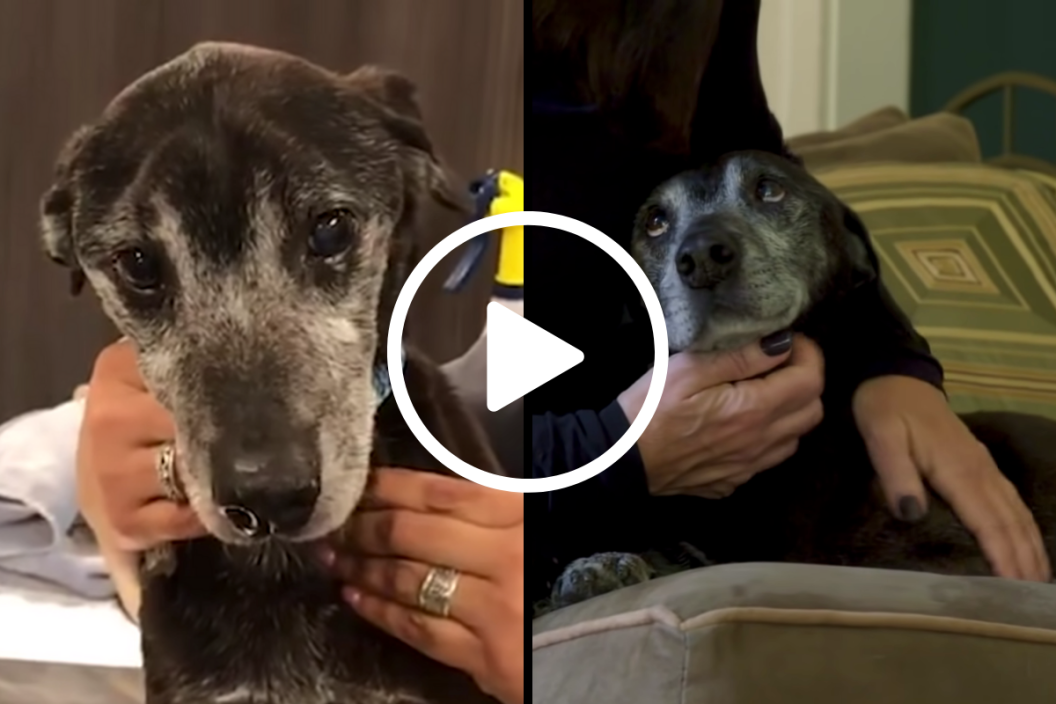Looking to give a shelter pet a new home? Consider adopting senior pets.
Older pets tend to find themselves spending long days at animal shelters. Most people adopting a new pet tend to lean toward younger dogs and cats, usually under one year of age. Of course, puppies and kittens are incredibly popular, finding new homes usually within a couple of days. Senior dogs and cats may be older, but they still have a lot of love to give.
Granted, there are some pros and cons to adopting older dogs and cats, but they really just want a second chance at a loving home.
What You See Is What You Get
https://www.instagram.com/p/CUYL70bJpSh/
Sarah Varanini with the Sacramento SPCA told Wide Open Pets that senior pets often acclimate to their new homes better and easier, as long as the homes are the right fit: "Puppies and kittens are adorable, no doubt, but both come with the additional bonus of pure mayhem, which you can skip with a senior pet!"
You also can skip the laborious potty training phase! Senior pets are already house-trained and are usually crate-trained as well. In addition, and depending on the situation they came from, they also know basic commands and making them a perfect additional family member in the right home.
Varanini also explained that senior pets are great for those who just want a pet to love but don't want the puppy drama. Senior pets are content to spend their golden years with their owner cuddling on the couch and hanging out as your new best friend. Senior cats also have a lower energy level than their younger counterparts and won't disturb your sleep. Varanini says if you want a cat but aren't looking for one who will get the zoomies at 2 a.m., then a senior cat is your best bet.
You Can Teach An Old Dog New Tricks
https://www.instagram.com/p/CT-L-dsl5jA/
RELATED: 10 Games for Dogs for Daily Enrichment That Also Prevent Boredom
Don't let a dog's age deter you from teaching it new tricks. Adult dogs are just as capable of learning new tricks as puppies. Older animals tend to have a longer attention span than younger animals do.
Many older dogs want to adapt to a new family and will strive to fit in. If you use positive reinforcement and have a lot of patience, you can teach your older dog some new commands that will help them adjust to their new home.
Don't let the grey muzzle fool you: These lovable senior animals have plenty of life left in them to share with potential adopters. But, of course, keep your expectations reasonable when attempting to teach an older dog new skills. Take their age and health into account and remember that patience is key. Older animals tend to take a little longer when learning new skills, but they are completely capable. According to the University of Vienna's Clever Dog Lab's study on how aging affects a dog's learning ability, it takes older dogs twice as long to learn a skill than puppies who are six months to a year.
However, the study did note that the dogs breed did not seem to affect their ability to learn. However, some dogs learn skills better than others. For example, golden retrievers, labs, German shepherds, and Border Collies are all highly trainable.
Address Medical Concerns
Potential adopters may have concerns about senior dogs having health problems and shy away from adopting them. While they will have a shorter time in their new home, healthy senior dogs will have a common lifespan for their breed, barring any medical issues.
Just like Holden's amazing story in this video, getting the health of a senior pet in order can be tricky, but when everything goes well, you can find a loving companion who fits with any family.
Varanini said at their Sacramento shelter, they have a caring community that will often sponsor the adoption fees for senior pets, giving those who want to adopt them a better chance of bringing them home since they do not have to worry about the pet adoption dollar amount. She says the nonprofit will treat the medical problems currently present, but there is always the potential for health problems to arise, and the adopting family should be prepared to deal with that.
Varanini added that all senior pets get veterinary care before adoption, saying,"Many animals receive the "senior special" — a full blood panel and dental cleaning with/without extractions, which alone saves the new family potentially thousands of dollars."
The shelter also removes any masses and other major medical procedures to get them ready for their new home. They also make sure they are current on their vaccinations.
Have Reasonable Expectations
https://www.instagram.com/p/CUVMO3SPpKA/
Before getting any new pet, no matter their age, you need to assess if they are the right fit for your household. For example, a senior dog may not be a good fit in a high-energy household. Sarah Varanini says the SPCA talks to potential adopters about their homes and day-to-day lives during the adoption process. She says they want to ensure that the new dog will fit into the home's environment and that it will be suitable for a senior dog. For example, she said they ask if you have young kids or energetic, playful dogs in the home. "A senior dog or cat may not appreciate the high activity of that particular household," Varanini said.
Local shelters are concerned about overall animal welfare and want to ensure that the pet will go to the best possible home.
"Some older pets do stay longer than other animals at the shelter - but some older animals fly out of the door! It really depends on size. Older, larger dogs may linger, while small, fluffy/scruffy type seniors may be adopted quickly. We recently had a bonded pair of small dogs (18 years old and 16 years old) that lasted only one week before finding their new family!"
Many shelters have plenty of adoptable pets sitting in kennels that fall into the senior category, waiting to go to their new home. They just need to find a good fit!
Would you consider adopting a senior pet? Tell us on our Wide Open Pets Facebook page!




